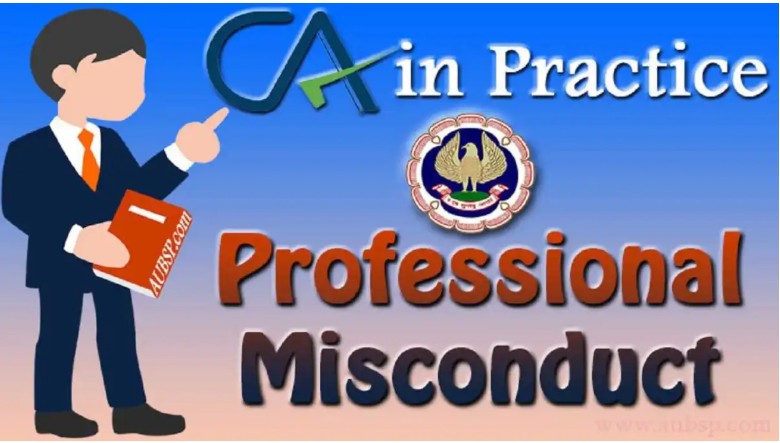D. Murugesan, J.@mdashThis Review Application is filed by Respondents 2 and 3 in O.S.A. No. 278 of 1997 seeking for review of the judgment dated 28.4.2005 passed in the said Original Side Appeal.
2. The First Respondent herein, Smt. Sarojini, was recorded as the Legal Representative of the deceased Smt. Lakshmi Kantham Ammal, who was the First Defendant in the Suit. The Second Respondent in this Review Application filed C.S. No. 178 of 1981 for the following judgment and decree:
(a) For partition and separate possession of the plaint & schedule properties by metes and bounds and allot to her one fourth share in all the properties and valuing the B schedule properties and deliver her l/4th share therein to the Plaintiff;
(b) Directing the Defendants to pay the marriage expenses of the unmarried Plaintiff to be paid from out of the estate;
(c) Directing the Defendants 1 and 2 to render a true and proper account of the mesne profits from ''A'' schedule and item 1 of the ''B'' schedule property and pay her l/4th share therein;
(d) For costs of the Suits.
3. As the issue in this Review Application is only in respect of rendition of accounts by the Revision Petitioners herein, we refer only that portion of the discussion and the findings rendered both in the Suit as well as in the Appeal.
4. While the claim of the Plaintiff, Kum. Bhagyavathi, viz., the Second Respondent herein, seeking for judgment and decree for rendition of accounts was considered, the learned Single Judge, in paragraph 27 of the judgment, found that the Review Petitioners have to render accounts in respect of half-share of the deceased Srinivasalu Naidu in the Partnership Firm till it got dissolved on 4.5.1980. That finding was rendered on the ground that one Srinivasalu Naidu was carrying on business in the name of M. Srinivasalu Naidu and Company as a Partnership Firm along with the Appellant/First Respondent herein through Smt. Lakshmi Kantham Ammal, the First Defendant in the Suit. The said Srinivasalu Naidu died on 4.5.1980. After his demise, the Partnership Firm got dissolved and his individual account with the firm showed a debit balance of about Rs. 89,000/-. Thereafter, a new firm in the same name, viz., M. Srinivasalu Naidu and Company was formed, wherein the First Respondent, her son and daughter were the partners. Placing reliance on Ex.P17, income and expenditure account of the firm for the year ended 31.3.1982 and the evidence of D.W.3, who was the husband of Sarojini Ammal, the First Respondent herein, stating that Srinivasalu Naidu was not the Sole Proprietor of M. Srinivasalu Naidu and Company and in the absence of any evidence to controvert the statement of account in Ex.P17, the learned Judge ultimately held that the said Sarojini Ammal, the First Respondent herein, should render accounts in respect of half-share of the deceased Srinivasalu Naidu in the Partnership Firm till it got dissolved on 4.5.1980.
5. While this finding was considered by the Division Bench in the Original Side Appeal, accepting the said finding, the Division Bench has observed as follows:
16. A plain reading of the above Section would not lend any support to the contention of the learned Counsel for the Appellant for the reason that admittedly either there was no final settlement of accounts or not contract to the contrary was entered and in such circumstances, it cannot be accepted that no property was passed from the dissolved partnership firm to the new Partnership Firm and therefore, the Third Defendant has to render accounts till the firm got dissolved on 4.5.1980.
6. In this Review Application, the Petitioners seek review of the above finding on the ground as to whether the First Respondent, viz., Sole Appellant in the O.S.A. has to render accounts of the Partnership Firm, viz., M. Srinivasalu Naidu and Company only upto 4.5.1980 when the said Srinivasalu Naidu died or for the period therafter. This ground is raised in terms of Sections 14, 16, 37 and 50 of the Indian Partnership Act, 1932 (''the Act'' in brevity). The contention of the learned Counsel appearing for the Petitioners is that even after the demise of Srinivasalu Naidu, the firm''s name has been retained by the surviving partner, viz., Sarojini Ammal, the First Respondent herein, along with her son and daughter and hence, in terms of Section 14, the goodwill of the firm is carried on by the new partners and therefore, they are liable to render accounts even after 4.5.1980. This being a right for the Petitioners to seek for rendition of accounts from the First Respondent herein even after the demise of Srinivasalu Naidu on 4.5.1980, the judgment had not considered the said legal issue, which has resulted in miscarriage of justice and therefore, it has to be reviewed.
7. We have heard the learned Counsel appearing for the Petitioners. The First Respondent, though was served and the name is shown in the cause list, did not appear. The learned Counsel representing the Second Respondent has also submitted in support of the Review Petitioners.
8. In terms of Section 37 of the Act, where any member of a firm has died or otherwise ceased to be a partner, and the surviving or continuing partners carry on the business of the firm with the property of the firm without any final settlement of accounts as between them and the outgoing partner of his estate, then, in the absence of a contract to the contrary, the outgoing partner or his estate is entitled at the option of himself or his representatives to such share of the profits made since he ceased to be a partner as may be attributable to the use of his share of the property of the firm. In terms of Section 16, the personal profits earned by the partners from any transaction of the firm or from the use of the property of business connection of the firm or the firm name, they shall render accounts for that property and pay it to the firm and Section 50 stipulates that the provisions of Clause (a) of Section 16 shall apply to transactions by any surviving partner or by the representatives of a deceased partner, undertaken after the firm is dissolved on account of the death of a partner and before its affairs have been completely wound up. As per Section 14 of the Act, the property of the firm includes all property and rights and interests in property originally brought into the stock of the firm or acquired, by purchases or otherwise, by or for the firm, or for the purposes and in the course of business of the firm, and includes also the goodwill of the business.
9. There is no dispute that even after the demise of M. Srinivasalu Naidu, the existing partner formed a new firm in the same name, which carries the goodwill. In the event Section 14 is read along with Section 37, the continuing partner under the new firm carrying the same goodwill is liable to render accounts even after the dissolution of the firm on the demise of Srinivasalu Naidu on 4.5.1980. In fact, the Division Bench, in paragraph 16, has proceeded on the basis that after the dissolution of the Partnership Firm, a new firm was formed and therefore, the question of rendering accounts would be only upto the date when the firm got dissolved. This finding, in our considered view, has resulted in miscarriage of justice as it is contrary to the above provisions of the Indian Partnership Act.
10. In this context, we may refer the following judgment of the Apex Court as to the power of this Court in the matter of seeking review under the circumstances. The Apex Court, in
16. The power, in our opinion, extends to correct all errors to prevent miscarriage of justice. The Courts should not hesitate to review its own earlier order when there exists an error on the face of the record and the interest of the justice so demands in appropriate cases. The grievance of the Appellant is that though several vital issues were raised and documents placed, the High Court has not considered the same in the review jurisdiction. In our opinion, the High Court''s order in the Revision Petition is not correct which really necessitates our interference.
In
90. Thus, a mistake on the part of the Court which would include a mistake in the nature of the undertaking may also call for a review of the order. An Application for review would also be maintainable if there exists sufficient reason therefore. What would constitute sufficient reason would depend on the facts and circumstances of the case. The words "sufficient reason" in Order 47, Rule 1 of the Code are wide enough to include a misconception of fact or law by a Court or even an Advocate. An application for review may be necessitated by way of invoking the Doctrine "actus curiae neminem gravabit.
If the law laid down by the Apex Court in the above two judgments is applied, the judgment in the O.S.A. should be reviewed and the finding as to the rendition of accounts by the First Respondent herein should not be restricted till the firm got dissolved on 4.5.1980 and it should be even for the period thereafter so long as the goodwill is carried on.
11. In view of the above, the Review Application is allowed to the extent. No costs.

